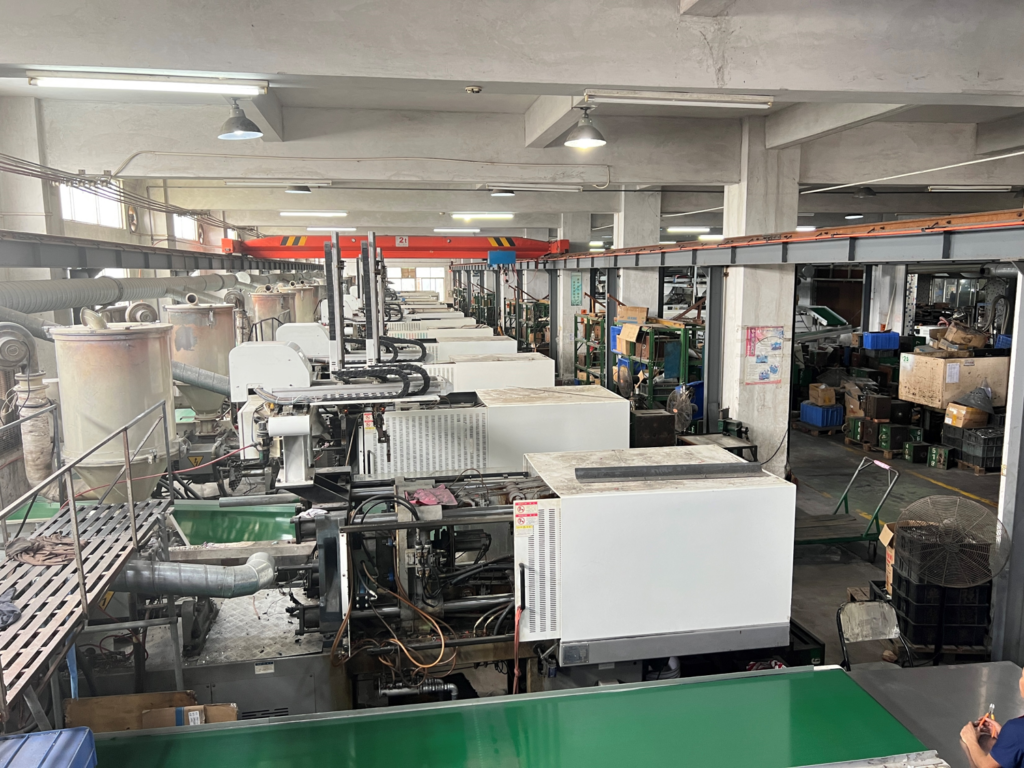Automation has revolutionized manufacturing, offering significant improvements in efficiency, precision, and scalability. Among the various types of automatic machinery, injection machinery stands out for its ability to produce high volumes of complex products with consistent quality. However, like any technology, it comes with both advantages and disadvantages. In this post, we’ll explore these aspects to help you better understand the impact of automatic machinery on your manufacturing processes.
Advantages of Automatic Machinery
- Increased Efficiency and Productivity Automatic machinery, such as injection molding machines, can operate continuously with minimal human intervention. This capability leads to higher production rates and faster turnaround times, enabling manufacturers to meet large-scale demands efficiently.
- Consistency and Precision One of the biggest advantages of automation is the consistency it brings to production. Injection machinery can produce identical parts with tight tolerances, ensuring high precision across large batches. This consistency is particularly crucial in industries where quality and uniformity are paramount.
- Cost-Effective in the Long Run While the initial investment in automatic machinery can be substantial, the long-term savings are significant. Automation reduces the need for a large workforce, lowers error rates, and minimizes material waste, leading to cost savings over time.
- Improved Safety By automating dangerous or repetitive tasks, companies can reduce the risk of workplace injuries. Injection machinery, for example, handles high-pressure tasks that would be hazardous for human operators, creating a safer working environment.
Disadvantages of Automatic Machinery
- High Initial Investment The upfront cost of purchasing and setting up automatic machinery is one of its biggest drawbacks. For small and medium-sized enterprises, this financial barrier can be challenging to overcome. The expense includes not only the machinery itself but also the training, maintenance, and potential upgrades needed over time.
- Dependency on Technology Automation can lead to over-reliance on technology, which poses risks if the machinery breaks down or malfunctions. Downtime due to technical issues can disrupt production schedules, leading to delays and potential financial losses.
- Reduced Employment Opportunities As automation takes over tasks previously performed by human workers, there is a concern about job displacement. While automation can create new roles in machinery operation and maintenance, it can also reduce the number of available positions in traditional manufacturing roles.
- Complex Maintenance and Repairs Automatic machinery, especially sophisticated injection machines, requires specialized knowledge for maintenance and repairs. When these machines fail, the complexity of fixing them can lead to extended downtime, and finding qualified technicians may be challenging and costly.
Conclusion
Automatic machinery like injection machines has undeniably transformed the manufacturing landscape, offering significant advantages in terms of efficiency, precision, and long-term cost savings. However, these benefits come with challenges, such as high initial costs, dependency on technology, and potential job displacement. As with any major investment, it’s essential to weigh these pros and cons carefully to determine the best approach for your specific manufacturing needs.

